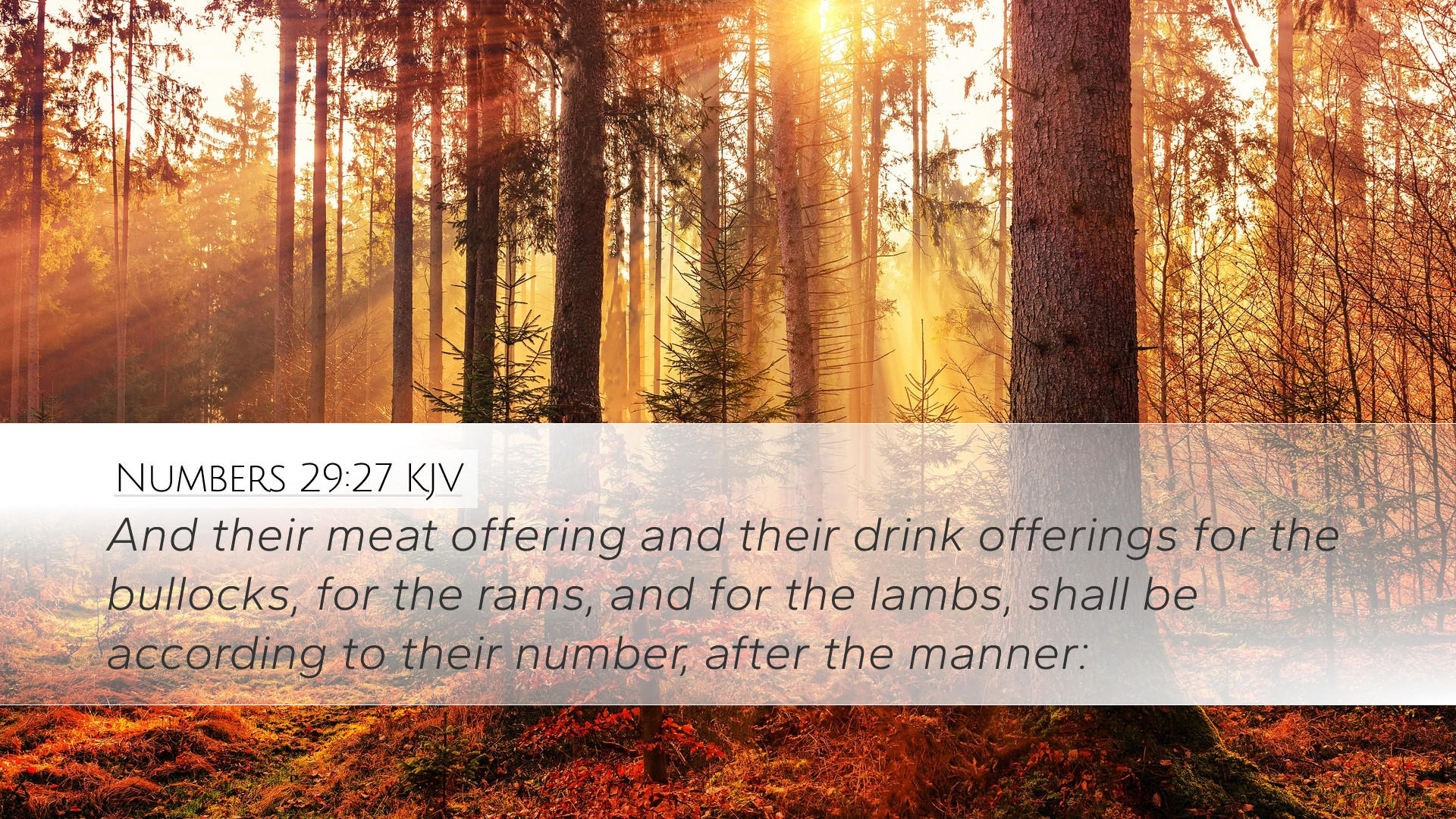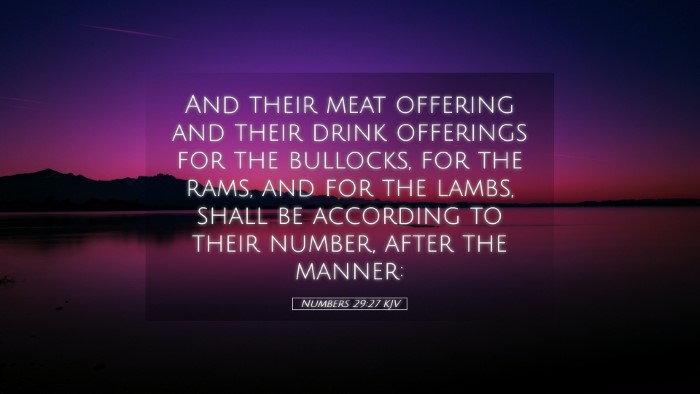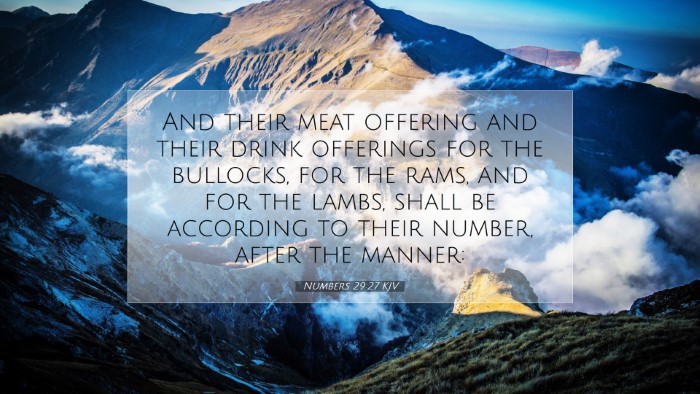Commentary on Numbers 29:27
Verse: Numbers 29:27 - "And on the fourth day, the son of Abinadab, the leader of the children of Ephraim, shall present his offering." (NUM 29:27)
Introduction
This passage is part of the detailed instructions given to the Israelites concerning their offerings during the Festival of Tabernacles. In this context, the scripture provides specific mention of the leader of one of the tribes, reinforcing themes of order, leadership, and communal worship within Israel.
General Exegesis
The Book of Numbers often reflects the organization and structure of Israelite worship, where each tribe has delineated roles in presenting offerings to the Lord. This verse echoes the importance of leadership and stewardship in serving God’s community. The specific mention of "the son of Abinadab, the leader of the children of Ephraim," highlights the significance Scripture places on proper representation and accountability in sacred duties.
Insights from Public Domain Commentaries
Matthew Henry's Commentary
Matthew Henry emphasizes the role of offerings as a means of expressing gratitude to God. He articulates that “each leader represents not merely himself but the entire tribe,” pointing out the communal nature of offering in ancient Israel. His exposition reveals how this delegation of duty not only honors God but also fosters unity among the people. Henry also notes that the specifics of the offerings symbolize the completeness and humbleness expected in worship, which serves as a model for modern believers in their approach to worship.
Albert Barnes' Notes on the Bible
Barnes provides an analytical framework for understanding the structured ritual of offerings. He observes that the offerings during the Festival of Tabernacles were meticulous and progressive, showcasing God’s provisions. "The role of Abinadab’s lineage," he states, "highlights the exemplary duty of leaders in making the offerings representative of their people’s faithfulness." Furthermore, Barnes elaborates on the significance of the Ephraim tribe's leadership. He suggests this points to God's choice of certain individuals to guide and intercede for the collective, urging contemporary leaders to embody such responsibility in their ministries.
Adam Clarke's Commentary
Adam Clarke provides historical context and theological significance to this offering. He remarks, “The offerings are a persistent theme throughout Scripture, expressing ongoing dedication.” Clarke points out that the act of presenting a communal offering signifies a deeper relational understanding between God and His people. He stresses that the note of "the fourth day" indicates a structured approach to worship, providing a distinct framework in which the Israelites engaged with God. Clarke accentuates that such ritualistic observance should not be mere routine but an expression of heartfelt devotion that modern believers strive to emulate.
Theological Reflections
From this passage, several theological insights can be gleaned:
- The Role of Leadership: Leaders are integral to the faith community; their actions reflect on the entire tribe or congregation.
- Community Worship: Worship is a collective act, where individual offerings contribute to a greater communal expression of faith.
- Faithful Representation: The role of a leader is to present not just their own offerings but those of the people they represent.
Application for Today's Church
This text encourages reflection on how local church leaders represent their congregations. They are entrusted with responsibilities that encompass not only administrative duties but also spiritual stewardship. Addressing how pastors conduct services, involve congregants in worship, and collectively celebrate God’s provisions, challenges modern church leaders to cultivate a more intentional and communal approach to worship.
Conclusion
Numbers 29:27 encapsulates vital truths about communal worship, leadership, and the nature of offerings. As we reflect on the nuances of this passage, may it inspire pastors, students, and scholars alike to examine the sincerity of their worship practices, the roles they play in their communities, and ultimately, their relationship with God.


